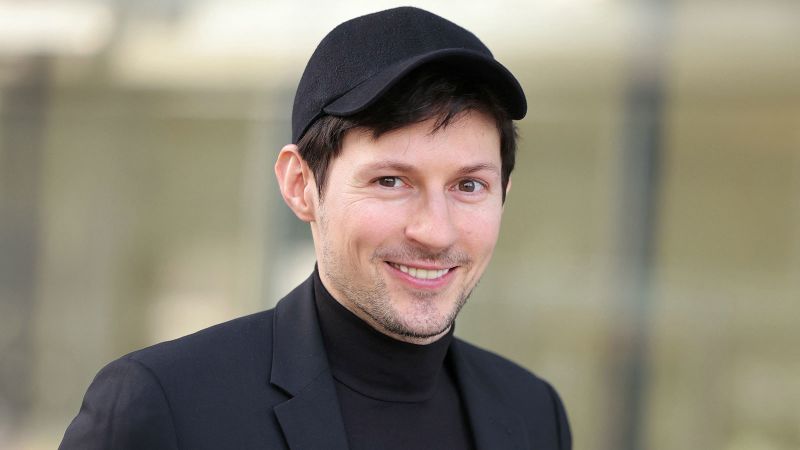Pavel Durov, the esteemed founder and CEO of the instant messaging platform Telegram, has made a staggering revelation regarding the future of his considerable fortune. In a recent interview with the French political magazine Le Point, the Russian-born tech billionaire shared his intention to bequeath his wealth to his over 100 children, which he has fathered through both relationships and sperm donation. Durov’s unique perspective on fatherhood and inheritance challenges traditional views on familial ties.
Durov, who is currently 40 years old, holds an unusual family structure that includes six legally recognized children with three different partners, alongside the multitude of others conceived via sperm donations. In his interviews, he emphasizes that he places no distinction between these groups of children. “They are all my children and will all have the same rights! I don’t want them to tear each other apart after my death,” he stated, highlighting his commitment to equality among his progeny. This decision reportedly comes after writing his will, ensuring that all his children are treated equally regarding inheritance rights.
Revealing more about his unique situation last year on social media, Durov disclosed the staggering number of children he has fathered. He recounts a doctor’s encouragement that it was his “civic duty” to share his “high-quality donor material,” which he proceeded to do over a span of 15 years. His candid admission sheds light on his philanthropic motivations, asserting that he viewed the act of donation as a contribution to society.
Despite being valued at an estimated $13.9 billion by Bloomberg, Durov expresses skepticism about this financial assessment, dismissing it as “theoretical.” In his conversation with Le Point, he stated, “Since I’m not selling Telegram, it doesn’t matter. I don’t have this money in a bank account. My liquid assets are much lower – and they don’t come from Telegram; they come from my investment in Bitcoin in 2013.” This statement serves to confuse those curious about the liquidity of his wealth as Durov’s riches are not directly tied to the ongoing revenue of Telegram.
Durov’s children face a significant wait regarding their inheritance, as he articulates a desire for them to develop independence. “I decided that my children would not have access to my fortune until a period of 30 years has elapsed, starting from today,” he explained. His approach seems rooted in the belief that financial reliance can undermine personal growth, emphasizing that he wishes for all his children—whether conceived naturally or through donation—to experience what he calls normality and self-reliance.
The release timing of his will aligns with Durov’s ongoing awareness of the complexities and threats surrounding his work. He currently resides in Dubai and has noted that his role in defending freedoms may present risks, leading to adversities from powerful entities. His desire to protect both his children and the platform he created, Telegram, is evident. He stated his wish for Telegram to remain true to the values he champions for, thereby intertwining his familial intentions with his professional legacy.
As Telegram continues to grow, boasting over a billion monthly users drawn to its security features and relatively liberal oversight of user-generated content, the challenges the platform faces persist. Notably, in the previous year, Durov found himself embroiled in legal troubles, having been arrested in Paris on various serious charges, including accusations relating to facilitation of money laundering and other illicit activities through his platform. He vehemently denies these allegations, which he refers to as “absurd,” asserting that the conduct of criminals using his service does not reflect on the integrity of its operation or its management.
Durov’s unique viewpoint on wealth, family, legacy, and the inherent challenges of operating a highly scrutinized tech platform paints a multi-dimensional portrait of a modern entrepreneur grappling with complex moral decisions. His journey continues to capture public interest, prompting discussions on family, finance, and the ethics of technology’s role in society.



